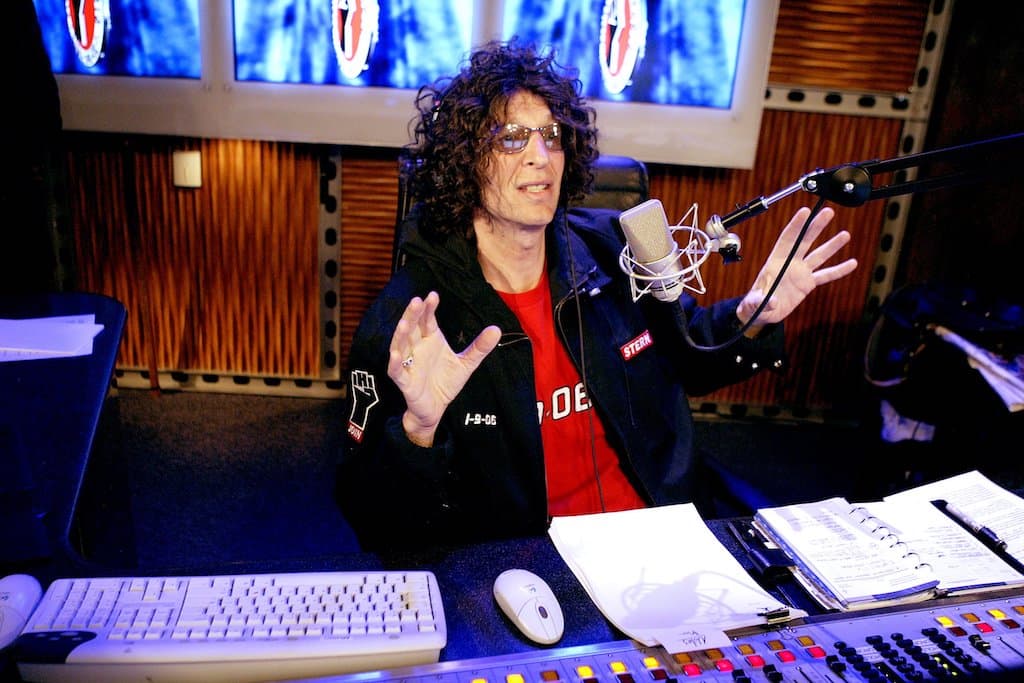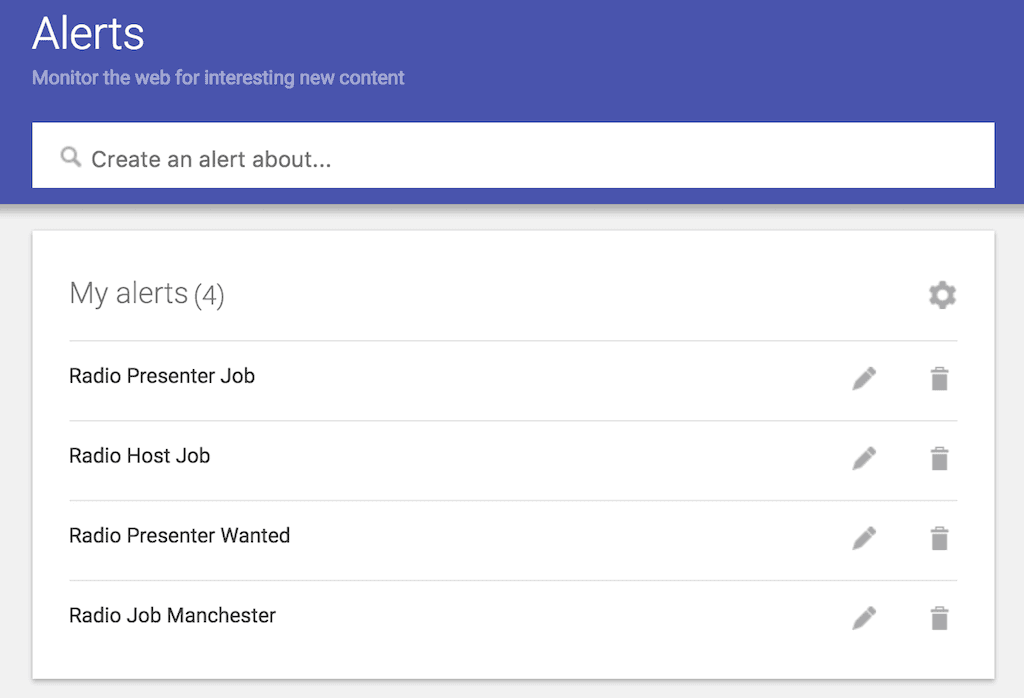how to become a radio host
How Famous Radio Presenters Got Started
We all have to start somewhere. Famous radio presenters were all once unknown, so it's interesting to see how they broke into the radio industry and the paths they took.
For example, the famous UK record producer John Peel got his first radio job at WRR (AM) in Dallas. Although it was unpaid, it got him started in the industry, later moving onto a bigger station at KLIF as the official Beatles correspondent (which was huge during the 60's).
Howard Stern got into radio in a similar fashion. In his second year at University, he started work at campus radio station WTBU as an unpaid disc jockey. Presenting news, playing records, and interviewing guests. He's come along way since then.

Best known for The Howard Stern Show, he's now one of the most famous personalities in the radio industry. Both Howard Stern and John Peel have something in common. They got started somewhere they could gain experience.
Become a Radio Presenter for Your Local Station
Local radio is where most famous radio personalities got started. Either at their local station, college, or community radio, so you should too.
Apply for work at a small radio station, even if it's behind the scenes and voluntary. Stations are looking for experienced people. If you are new to the radio industry then try and stand out. For example, Adam Pacitti went above and beyond to land his dream job in the media industry by hiring a billboard to advertise himself.

It may seem a little excessive, but it worked! Landing him around 60 job offers. Just like Adam's creative approach, you should be thinking of the best way to present yourself. Radio stations get hundreds of phone calls and emails a day. If you're getting in touch via email keep it friendly and to the point, try something like:
Hi Steven,I'm looking for work at your station and wanted to know if there's a role available?
I recently graduated from the University of Dallas with a Degree in Communications and Technology where I helped run Radio UTD. As part of my time there I planned out shows, edited audio, and presented when the opportunity arose.
Check out a few things I produced here: [Add Link]
Let me know what you think.
Thanks,
Alice Green
A short simple email gets your point across. Mentioning past experiences or skills shows you have value to the station. Depending on who you contact your approach may differ, so research the station and person first before getting in contact.
Study Communications or Broadcasting Degrees
There are no specific qualifications to become a radio presenter. You can study anything and still end up in radio, but it helps if you go into the right area.
Courses related to acting or voice acting, speaking, or personality development will look pretty good on your CV when applying for a presenter job. For example, music educational institute BIMM offers courses on vocals, music business, and other music-related areas that will help to get your foot in a radio station's door.
That being said, there are commercial radio stations that offer on-site training designed for future DJs. Screen Skills in the UK offer apprenticeships for people to build a career in the industries like radio.
Practice Running Your Own Radio Station
It's often said that imitation is the sincerest form of flattery. Listen to radio hosts you enjoy, copy them for a while, and then develop a unique style on your own show.
If you don't have a show on a local station then set one up yourself. With Radio.co you can broadcast live and automate shows for when no one is around. Use it as a tool to practice your skills and showcase to big commercial stations looking for talent.
There's no need for expensive equipment or a complex setup. You can start your own radio station from home in minutes. Here's everything you need to know to get on the air in no time.
Develop Professional Connections
There's no one route into the radio industry, but it helps if you know the right people. Develop your connections and build a professional reputation.
Some of the most successful radio presenters, like BBC Radio 1's Nick Grimshaw, have had long careers because of networking and branding themselves. For example, Grimshaw presented shows at ICON Radio at the University of Liverpool, which led to work at BBC Radio.

Starting out in student or local radio can give you the skills and reputation needed to get your foot in the door to greater opportunities. Small radio stations let you develop professional connections and hone your craft before moving to bigger and better things.
Keep Updated About the Radio Industry
The radio industry is always evolving. What may have been the standard one minute can change to something else. Try and keep updated by following as many industry experts as possible. We recommend:
- RAIN News: Radio and internet updates about the future of the industry.
- James Cridland: New platforms/technology in the radio industry.
- Radio Ink: News on the radio management sector of the broadcasting industry.
- Radio Today: Industry news specific for the US, UK, Australia, and more.
- Media.info: More industry news, forums and jobs.
For specific news updates try using Google alerts. Setup keywords and get regular updates, for example, if you are looking for a job as a presenter add "Radio Presenter Job" or "Radio Host Job".
You can do the same thing for other search engines like Bing or Yahoo!.
Become a Great Radio Presenter
Get the knowledge you need to become a radio presenter with the Great Radio Presenter Course. Access techniques that the big stations are using to grow their listener numbers by learning from the world's best DJs. In the course you will get learn:
- Your Listener: Techniques to understand your listener and how to be memorable.
- Your Content: Surefire methods to guarantee great ideas to stand out.
- Prepping: How to plan out your shows and pick relevant content for your audience.
- Being the Host: Understand how to keep your listeners engaged.
- Your Voice: Be authentic and engaging to keep listeners hooked.
- Amplifying Shows: How to get your content online to attract a bigger audience.
how to become a radio host
Source: https://radio.co/blog/how-to-become-a-radio-presenter
Posted by: riversschism.blogspot.com

0 Response to "how to become a radio host"
Post a Comment